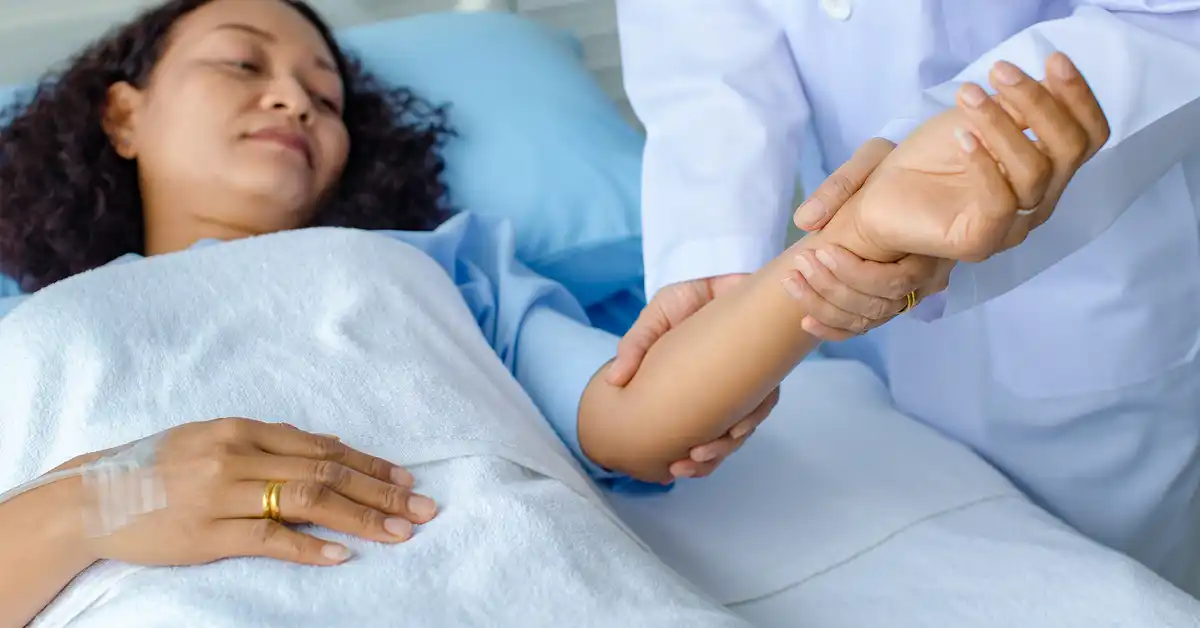Blog Series: The Journey through Vaccine Injury
- First Signs: Recognizing Vaccine Injury Symptoms
- Documenting Your Vaccine Injury: A Critical Step for Your Case
- When to Suspect SIRVA: Understanding Vaccine-Related Shoulder Injuries
- Guillain-Barré Syndrome after Vaccination: Understanding Vaccine-Related GBS
- Navigating the Healthcare System with a Vaccine Injury
- Why and When to Contact a Vaccine Injury Attorney
- What to Expect in the Vaccine Injury Compensation Program
Guillain-Barré Syndrome (GBS) is one of the most serious complications following vaccination. Understanding the signs and progression of GBS helps individuals recognize when concerning symptoms might indicate this serious neurological condition.
Understanding Guillain-Barré Syndrome
Guillain-Barré Syndrome occurs when the body’s immune system mistakenly attacks its peripheral nerves. Following vaccination, this autoimmune response can develop within days to weeks, causing progressive nerve damage that requires immediate medical attention.
Key characteristics of GBS include:
- Progressive muscle weakness
- Ascending paralysis pattern
- Tingling or numbness sensations
- Rapid symptom development
- Potential breathing difficulties
- Balance problems
Distinguishing GBS from Normal Reactions
Normal vaccine reactions typically include:
- Mild fever
- Injection site soreness
- Temporary fatigue
- Brief muscle aches
GBS symptoms differ by being:
- Progressive and worsening
- Symmetrical (affecting both sides)
- Moving from lower to upper body
- More severe and persistent
- Affecting multiple body systems
Seeking Medical Attention
It is important to seek immediate medical attention when:
- Weakness progresses rapidly
- Breathing becomes labored
- Walking becomes unstable or difficult
- Face or eye movements change
- Swallowing becomes challenging
- Symptoms worsen quickly
Diagnostic Process
Healthcare providers use several methods to diagnose GBS:
- Neurological examination
- Spinal fluid analysis
- Nerve conduction studies
- EMG testing
- Blood tests
- MRI imaging
Treatment Approaches
Treatment for GBS typically includes:
- Plasma exchange therapy
- Intravenous immunoglobulin
- Respiratory support
- Physical therapy
- Occupational therapy
- Pain management
- Rehabilitation services
Impact on Daily Life
GBS can significantly affect multiple aspects of life:
- Mobility challenges
- Personal care difficulties
- Extended hospital stays
- Recovery time needs
- Work limitations
- Emotional adjustment
- Family support requirements
Long-Term Considerations
Understanding the recovery process helps with:
- Setting realistic expectations
- Planning rehabilitation needs
- Arranging support systems
- Managing ongoing care
- Monitoring for complications
- Preventing future issues
Documentation Requirements
Proper documentation of GBS is essential:
- Vaccination records
- Initial symptom timeline
- Medical evaluations
- Treatment responses
- Recovery progress
- Functional limitations
- Healthcare provider notes
Recovery Outlook
GBS recovery varies by individual:
- Most improve with treatment
- Recovery can take months
- Many individuals experience residual effects
- Rehabilitation plays a key role
- Support systems matter
- Regular monitoring needed
Looking Forward
Understanding GBS helps individuals:
- Recognize symptoms early
- Seek immediate medical care
- Document progression properly
- Make informed decisions
- Consider treatment options
- Plan for recovery needs
Remember that while GBS is a serious condition, early recognition and prompt treatment often leads to better patient outcomes. Working closely with healthcare providers while maintaining detailed records helps individuals down the best possible path to recovery.
Next in our series: Navigating the Healthcare System with a Vaccine Injury

